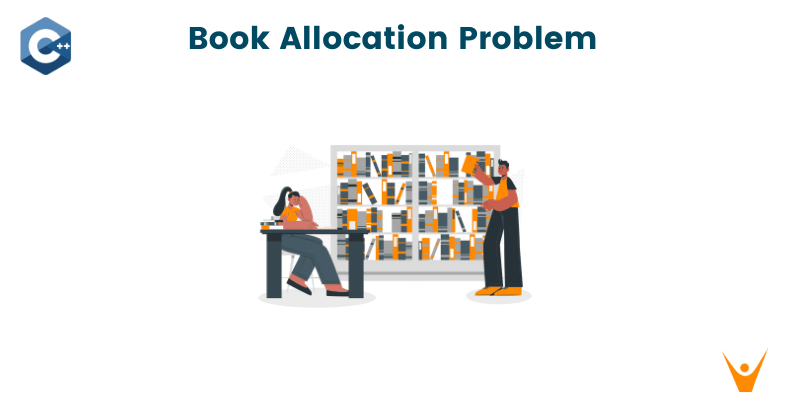In today's digital age, where vast libraries of books are available at our fingertips, the challenge of efficiently allocating books to readers has become a significant concern. The Book Allocation Problem aims to assign books to readers in a manner that maximizes reader satisfaction. This article delves into the intricacies of the Book Allocation Problem and its potential solutions to optimize book allocation.
What is the Book Allocation Problem?
The Book Allocation Problem revolves around the task of assigning a set of books to a group of readers based on their preferences. The objective is to create an allocation that maximizes overall satisfaction among readers while considering the availability of books.
Several approaches and algorithms have been developed to address the Book Allocation Problem. Let's explore some of the common strategies:
-
Greedy Algorithms: Greedy algorithms make locally optimal choices at each step to build a solution iteratively. In the context of book allocation, a greedy algorithm might assign books to readers based on their highest genre preference, ignoring other factors.
-
Genetic Algorithms: Inspired by biological evolution, genetic algorithms use a population of potential solutions and iteratively refine them to find an optimal allocation. These algorithms introduce randomness and utilize concepts such as crossover and mutation to explore different combinations.
-
Mathematical Programming Techniques: Mathematical programming techniques formulate the book allocation problem as a mathematical model with specific constraints and objectives. These techniques provide a systematic and mathematical approach to finding optimal solutions, but they can be computationally expensive for large-scale problems.
Book Allocation Algorithm
Here's a step-by-step algorithm to solve the Book Allocation Problem:
- Start with the input matrices:
readerPreferencesandbookPreferences, representing the preferences of readers and books, respectively. - Create two vectors:
allocatedBooksandbookAssigned.allocatedBookswill store the assigned book for each reader, andbookAssignedwill track whether a book has been assigned or not. Initialize both vectors with default values (-1 forallocatedBooksand false forbookAssigned). - Iterate over each reader in the
readerPreferencesmatrix.- For each reader, iterate over their book preferences in order of preference.
- Check if the book has been assigned (
bookAssigned[book] == false). - If the book has not been assigned, assign it to the current reader (
allocatedBooks[i] = book) and mark it as assigned (bookAssigned[book] = true). - Break the loop to move on to the next reader.
- Display the results of the book allocation:
- Iterate over the
allocatedBooksvector. - Output the reader index and the corresponding assigned book index.
- Iterate over the
This algorithm uses a greedy approach, assigning each reader their highest preferred book that has not been assigned yet. The process continues until all readers have been assigned a book.
C++ Implementation
Here's an example of a simple greedy algorithm implemented in C++ to solve the Book Allocation Problem. This code assumes that there are n readers and m books, and the preferences are represented by matrices readerPreferences and bookPreferences.
#include<iostream> #include<vector> using namespace std; // Function to allocate books to readers using a greedy algorithm void allocateBooks(vector<vector<int>>& readerPreferences, vector<vector<int>>& bookPreferences) { int numReaders = readerPreferences.size(); int numBooks = bookPreferences.size(); vector<int> allocatedBooks(numReaders, -1); // Stores the assigned book for each reader vector<bool> bookAssigned(numBooks, false); // Tracks if a book has been assigned for (int i = 0; i < numReaders; ++i) { for (int j = 0; j < numBooks; ++j) { int book = readerPreferences[i][j]; if (!bookAssigned[book]) { allocatedBooks[i] = book; bookAssigned[book] = true; break; } } } // Display the book allocation results for (int i = 0; i < numReaders; ++i) { cout << "Reader " << i + 1 << " is allocated Book " << allocatedBooks[i] + 1 << endl; } } int main() { // Example input vector<vector<int>> readerPreferences = { {1, 0, 2}, {2, 0, 1}, {1, 2, 0} }; vector<vector<int>> bookPreferences = { {0, 1, 2}, {2, 1, 0}, {1, 0, 2} }; allocateBooks(readerPreferences, bookPreferences); return 0; }
Output:
Reader 1 is allocated Book 2 Reader 2 is allocated Book 3 Reader 3 is allocated Book 1
In this code, the allocateBooks function takes in two matrices: readerPreferences and bookPreferences. The readerPreferences matrix represents the preferences of each reader, where each row corresponds to a reader, and each column represents the book preference (0 being the most preferred).
Similarly, the bookPreferences matrix represents the preferences of each book, where each row corresponds to a book, and each column represents the reader preference (0 being the most preferred).
The allocateBooks function uses a greedy approach to assign books to readers. It iterates over each reader and their preferences, attempting to assign the highest preferred book that has not been assigned yet. The assigned books are stored in the allocatedBooks vector, and the bookAssigned vector keeps track of the assigned books.
Finally, the allocated books are displayed as output.
Time and Space Complexity
The overall time complexity of the algorithm to solve the Book Allocation Problem is O(n * m). The space complexity of the code is O(n).
Conclusion
We explained The Book Allocation Problem and its solution with C++ code. This problem encapsulates multiple criteria, including genre preferences, book popularity, and individual reader preferences. T








